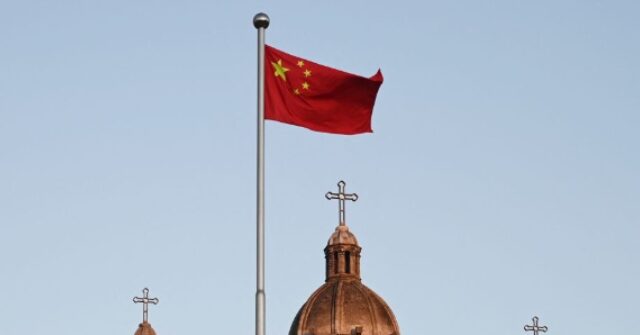The Chinese Communist Party (CCP) has intensified its campaign against religious practices in China, exemplified by its systematic removal of Christian symbols such as crosses from churches. In a troubling report by the United States Commission on International Religious Freedom (USCIRF), this effort is identified as part of a broader strategy to achieve “total control” over both the Catholic Church and other religious groups under the leadership of Premier Xi Jinping. This agenda includes a process termed “sinicization,” which aims to align various religions with Chinese cultural norms. The report underscores that these actions violate internationally recognized rights to freedom of religion, hindering established faiths from practicing their beliefs without state interference.
The measures adopted by the Chinese government are multifaceted and increasingly invasive. Officials have ordered the removal of Christian iconography, replacing images of Christ and the Virgin Mary with portraits of Xi Jinping. Furthermore, churches are pressured into displaying slogans that promote the party’s ideology. The government mandates that clergy preach the tenets of CCP ideology rather than traditional religious doctrine, significantly altering the landscape of religious practice. In an additional maneuver to control religious groups, the CCP forces them to join “patriotic religious associations,” with Catholic institutions required to affiliate with the Bishops’ Conference of the Catholic Church in China—an organization under direct CCP oversight. This control mechanism is aimed fundamentally at subjugating religious practices to the party’s authority.
The consequences for those who resist these imposed directives are severe. Members of underground Catholic communities, who practice their faith independently of government mandates, are particularly vulnerable to persecution under China’s anti-cult legislation. This law grants the state considerable power to target individuals and groups that do not conform to the CCP’s religious guidelines. Reports indicate that underground Catholics—who stand firm against government control—face increasing risks, including imprisonment and extensive surveillance. While some Catholics opt to worship within the confines of the state-sanctioned Chinese Catholic Patriotic Association, this association does not provide true freedom, as members are compelled to accept and propagate the party’s ideological stance.
Among the most controversial aspects of the CCP’s strategy is the 2018 agreement made between Pope Francis and the Chinese government, which was intended to facilitate cooperation in selecting Catholic bishops in China. However, the USCIRF report raises alarm that this agreement has not led to greater involvement from the Vatican in the naming of bishops; instead, the CCP has consistently appointed bishops independently and without consultation from the Holy See. Some bishops opposed by the regime have reportedly disappeared, compounding concerns about the safety and autonomy of religious leaders in the region.
The plight of bishops and clergy is particularly alarming as these individuals play critical roles in maintaining the structure and integrity of the Church. As highlighted by Nina Shea of the Hudson Institute’s Center for Religious Freedom, bishops who resist government pressure often face dire repercussions, including indefinite detention and removal from their diocesan responsibilities. This dynamic reflects the CCP’s broader strategy of displacing traditional religious leadership to ensure the dominance of state-approved narratives and practices. The existing agreement with the Vatican fails to address these urgent issues, particularly the plight of those bishops who decline to join state-sanctioned organizations based on their conscience or moral grounds.
The landscape of religious persecution in China is not limited to Catholics but broadly affects various faith communities, most notably Uyghur Muslims, who endure severe human rights abuses, including forced labor. The government’s systematic effort to control all facets of religious life signals a significant departure from the idea of religious freedom and highlights the risks posed by authoritarian governance in shaping spiritual expression. As both domestic and international attention turns to these troubling developments, the urgency of advocating for the rights of religious practitioners in China becomes more pronounced, emphasizing the need for concerted action against such oppressive measures.

